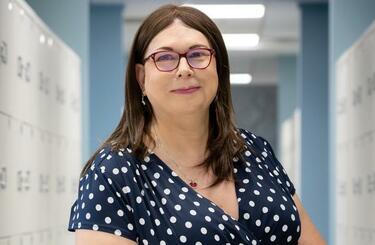
Weighing up the consequences of doing the right thing

For World Quality Week 2022, the CQI’s Chair, Amanda McKay CQP FCQI, discusses what doing the right thing looks like in the nuclear industry, and the changes that have occurred over recent years to incorporate a quality conscience from the start.
As a quality practitioner for over 30 years, I’ve seen lots of changes in both the sectors I’ve worked in, and the quality profession itself. Many organisations are now more aware of their social impact and the need to report on their approach to environment, social impact and governance. We are also seeing the board being held to account for not only financial and productivity performance, but also being a ‘good’ organisation.
Productivity and profitability do not always drive the right behaviours. I’ve seen that over the years, especially with quality, where corners can be cut when things are buried under lots of concrete or in difficult to reach places, sometimes technically within the specification. In recent years I have seen a change in the way quality is perceived at board level. In my early days it was about inspection and quality control, but we are now seen as trusted advisors working with the other functions in the organisation to do the right thing.
What does ‘doing the right thing’ mean
Doing the right thing means that we build in quality from the start. In the industry I work in, that means quality is part of the Gate 0 (pre discovery phase) considerations along with method, cost and schedule. We also think about the ethics of what we are doing, if it is the right thing to do, whether we should be involved with this organisation, or working with this country – this was not the case a few years ago.
Weighing up the repercussions
Looking at the current political situation across Europe, we have seen organisations and countries in a dilemma over doing the right thing, especially with energy costs rising. It would be easy to ignore the moral dilemma and take the cheapest/easiest option, but countries have taken the right choice. However, even the ‘right’ moral choice can have repercussions – for some countries, it has brought another environmental issue with the return to coal and delaying the decommissioning of nuclear power. These are difficult choices but overall are made for right reasons.
As a profession, our principles have been about doing things right and right first time, but that isn’t always the same as doing the right thing. Our core competencies as a profession – being governance, assurance, improvement and leadership – should lead us down the route of being the consciousness of the organisation. Within quality, we tend to be embedded across the organisation and sighted on all aspects of the strategy and operations, so we are in a good place to understand and advise on doing the right thing.
I’m looking forward to World Quality Week in November and the discussions and debates about ‘doing the right thing’ how we as a profession understand the concept and share the good practice across all sectors.
Learn more about World Quality Week 2022
Download resources, let us know how you are celebrating, and discover more to read on the theme, 'Quality conscience: Doing the right thing'.